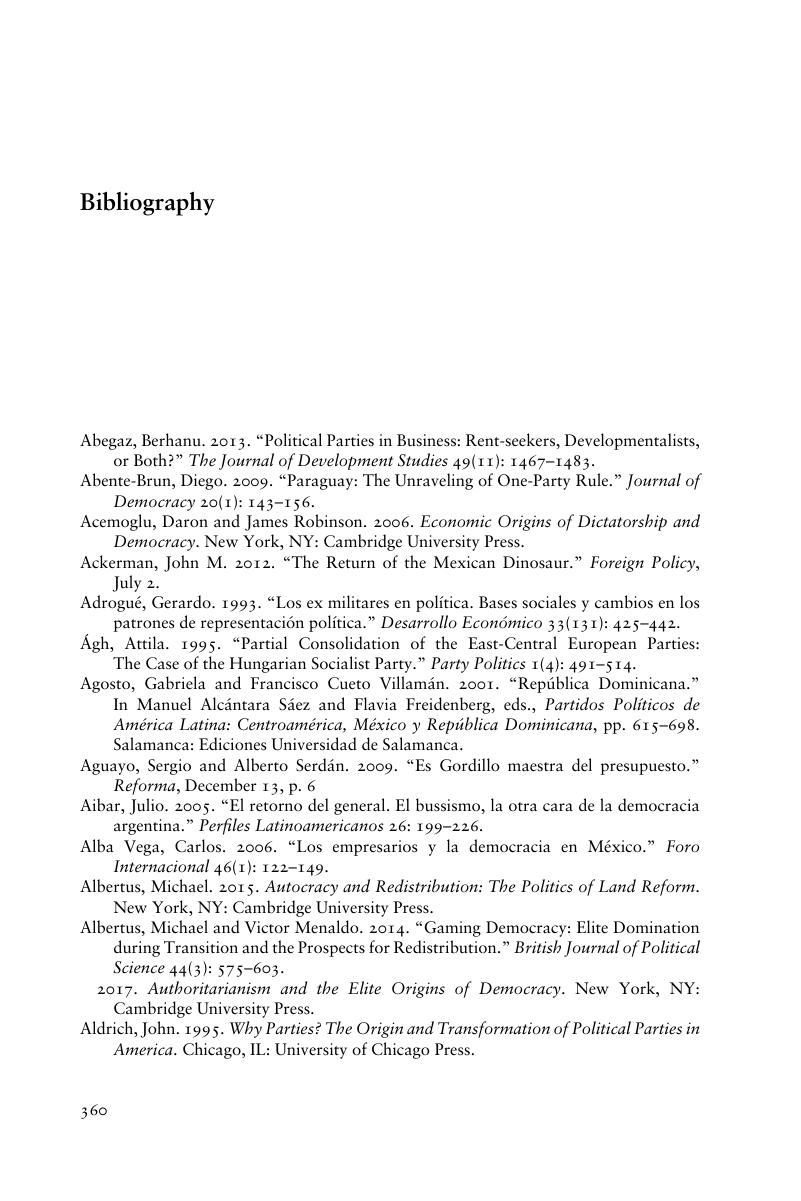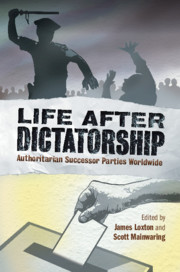Book contents
- Life after Dictatorship
- Life after Dictatorship
- Copyright page
- Contents
- Figures
- Tables
- Contributors
- Preface
- Acronyms
- Introduction
- Part I Why Do Authoritarian Successor Parties Exist (and Often Win Elections)?
- Part II What Explains Variation in Authoritarian Successor Party Performance?
- Part III What Are the Effects of Authoritarian Successor Parties on Democracy?
- Conclusion
- Bibliography
- Index
- References
Bibliography
Published online by Cambridge University Press: 24 August 2018
- Life after Dictatorship
- Life after Dictatorship
- Copyright page
- Contents
- Figures
- Tables
- Contributors
- Preface
- Acronyms
- Introduction
- Part I Why Do Authoritarian Successor Parties Exist (and Often Win Elections)?
- Part II What Explains Variation in Authoritarian Successor Party Performance?
- Part III What Are the Effects of Authoritarian Successor Parties on Democracy?
- Conclusion
- Bibliography
- Index
- References
Summary

- Type
- Chapter
- Information
- Life after DictatorshipAuthoritarian Successor Parties Worldwide, pp. 360 - 397Publisher: Cambridge University PressPrint publication year: 2018

